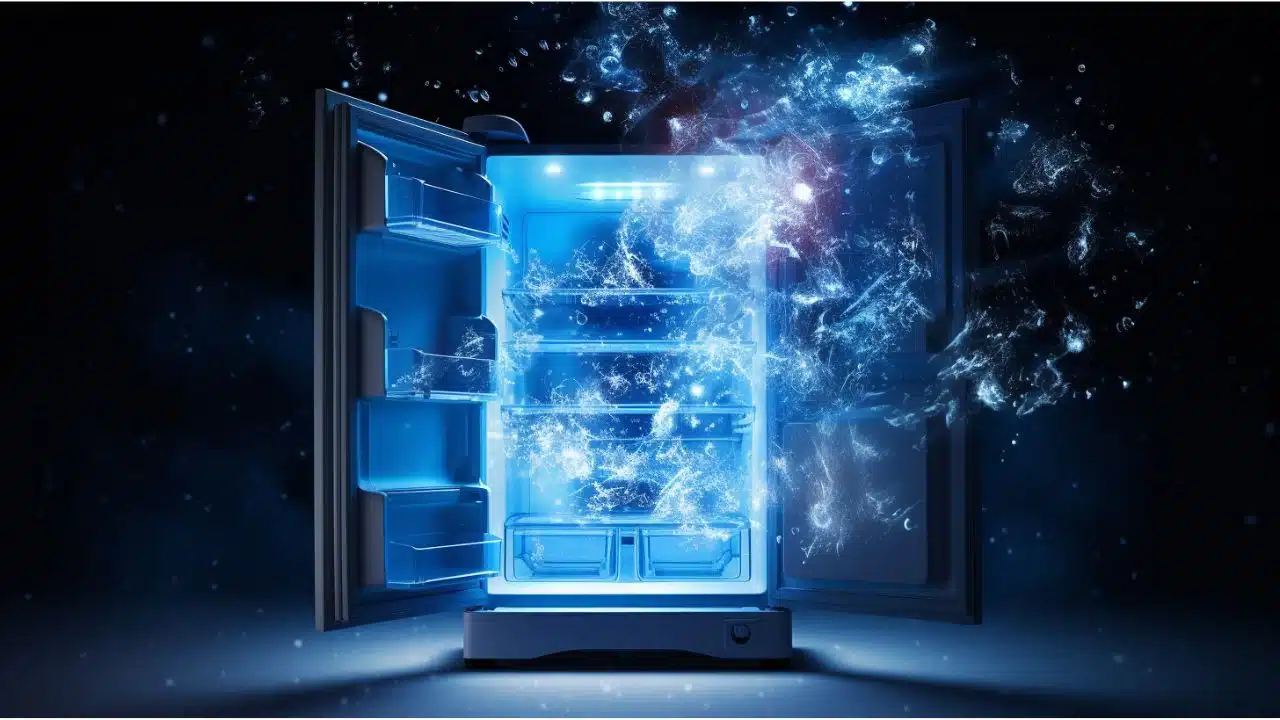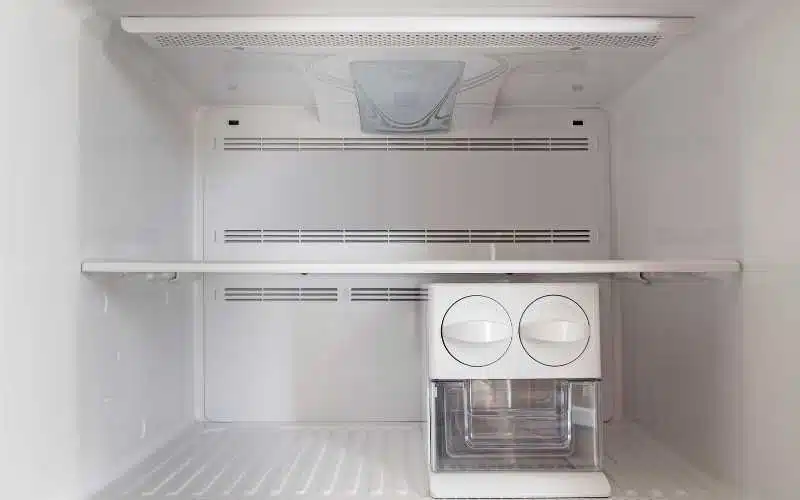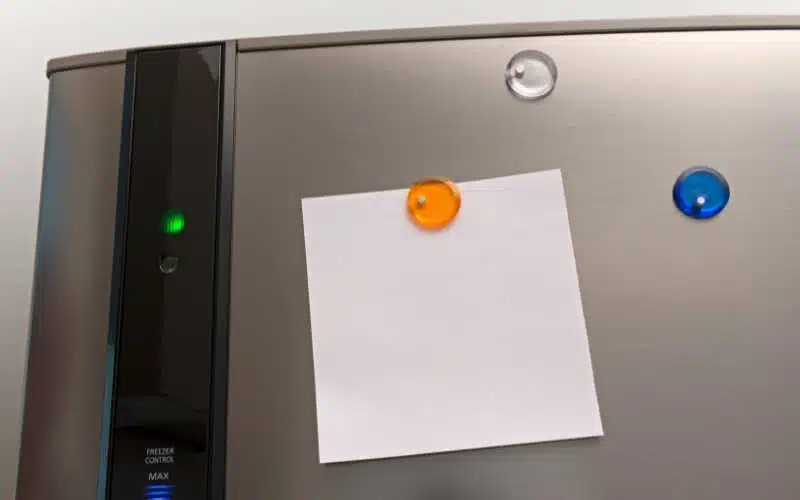Power surges can be sneaky villains for home appliances. Picture this: a sudden jolt of electricity hits, and your trusty refrigerator stops working.
Frustrating, right? Let’s explore how these unexpected surges can turn your cool fridge into a warm box.
Protect Your Refrigerator from Power Surges: Key Tips
- Power surges can damage sensitive components of your fridge, especially the compressor and control board.
- To safeguard your refrigerator, use a surge protector specifically designed for large appliances.
- Unplug your fridge during storms to prevent damage from lightning surges.
- Check for surge damage symptoms like a burnt smell, unusual noises, or failure to start.
- Consult a professional for repairs if your fridge shows signs of surge damage or continues to malfunction.
Understanding Power Surges and Refrigerators
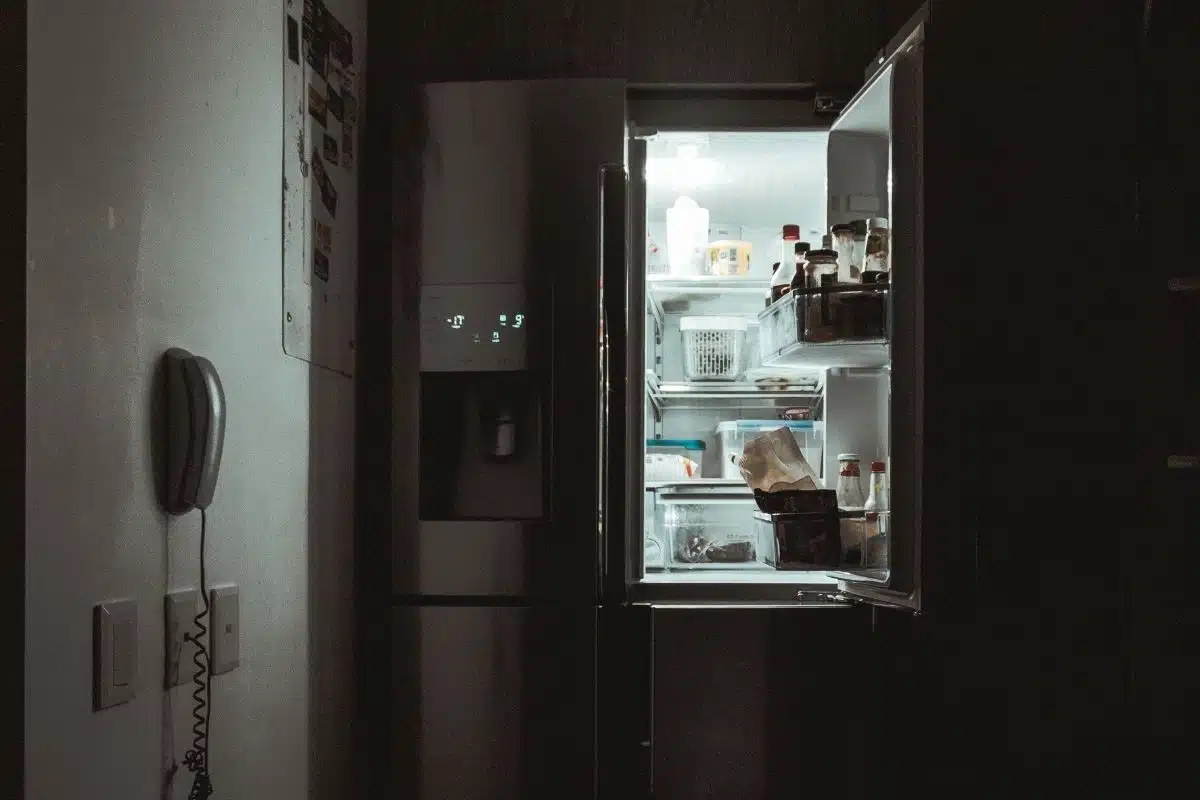
A power surge is when electricity spikes very high super fast. You can think of it like a huge wave of energy coming at your home’s electric things.
What happens:
- Your home normally uses 120 volts of electricity.
- A surge sends much more than that!
- It can happen during a lightning storm or if something goes wrong with the power lines.
Now, your fridge is like a big box that keeps food cold. It has parts in it that can get hurt by too much electricity. One part is the compressor, which helps the fridge stay cool. If a power surge happens, it can break.
Why Fridges Get Hurt by Power Surges:
- Sensitive parts:
- Control board: The brain of the fridge
- Compressor: Heart of the cooling system
- Not ready for spikes:
- Fridge circuits can’t handle big surges.
Risks to Your Fridge:
- The breaker switch may flip and stop the damage.
- The compressor might get ruined by a powerful surge.
- If the surge is strong, it can hurt the parts that make the fridge work.
Keep Your Fridge Safe:
- Unplug it during a storm.
- Use a surge protector.
Last update on 2024-01-07 / Affiliate links / Images from Amazon Product Advertising API
Your fridge is important, so remember to look after it when there’s a chance for surges. It will help you avoid costly fixes.
Can Power Surge Damage A Refrigerator?
Electrical power surges can strike without warning and may affect any plugged-in appliances, including your refrigerator.
These surges can occur during severe weather, like a storm, or from a lightning strike.
They can also happen when too many devices are used at once or from issues with the power lines and transformers.
Broadly, there are a couple of common causes for power surges in your home:
- Overloading a socket with multiple devices.
- High demand from the refrigerator cycling off and on.
During a power surge, the excessive electrical energy can overwhelm and potentially damage the sensitive electronic parts of your refrigerator.
These parts might include the:
- Compressor
- Circuit Boards
- Electronic Controls
Here are the symptoms of surge damage in refrigerators:
- Burnt smell or smoke
- Fridge not turning on
- Unusual noises
To help protect your fridge and other electrical appliances, consider these tips:
- Unplug electrical devices during a lightning storm.
- Use surge protectors.
- Install safety devices that control power surges.
A surge protector is crucial because it acts as a safeguard, blocking extreme electrical fluctuations from reaching your fridge.
However, in the case of a direct lightning strike, damage can be significant and difficult to prevent.
Remember, while safety devices can lessen the impact, no appliance is entirely immune to the potent force of a power surge.
If you suspect your refrigerator has been hit by a surge, check for any obvious damage and consult a professional for repair or advice.
How Power Surges Affect Refrigerators
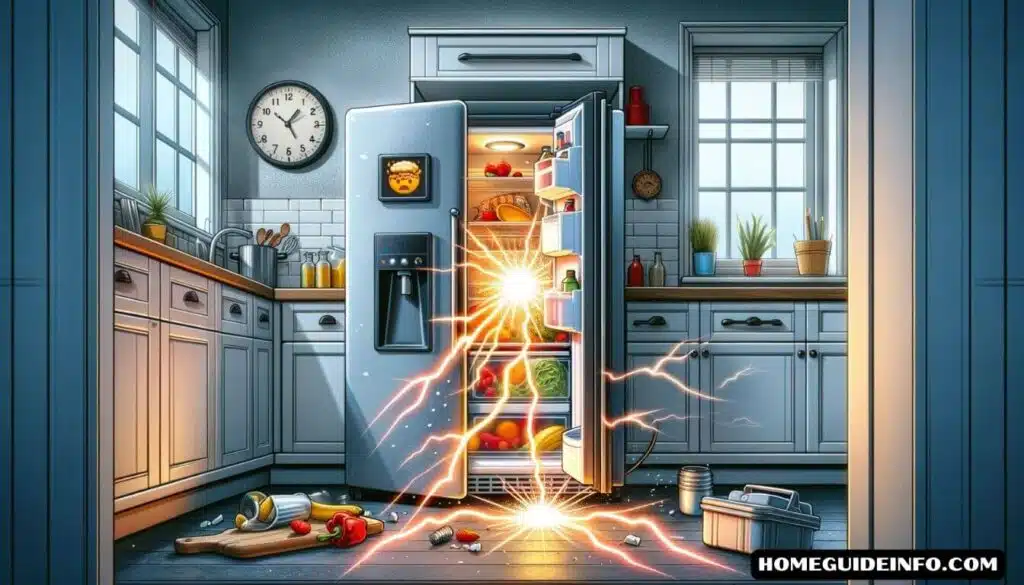
When a power surge happens, your refrigerator can get hit hard. A surge is a sudden increase in electricity. It’s like a big wave of energy rushing into the fridge’s parts.
- Circuit Boards: Your fridge has a brain called a circuit board. A surge can fry this board. When that happens, your fridge may not know how to cool properly anymore.
- Compressor Damage: The compressor is like the heart of the fridge. It pumps coolant to keep things cold. A high-voltage surge can break the compressor’s windings. This means the compressor may stop working.
| Fridge Component | Effect of Power Surge |
|---|---|
| Circuit Board | Fails and causes cooling issues |
| Compressor | Stops pumping coolant; fridge stops cooling |
Remember, not all surges kill your fridge forever. Sometimes it just trips the breaker switch. That’s like a safety switch in your house turning off to protect the fridge.
If you have an older fridge, it might be more tough against small surges. But, sensitive controls in new fridges don’t like any surges. They’re more likely to get damaged.
Remember to check your fridge after a power outage. This is because outages often come with surges. So even if the lights come back on, your fridge could have been hurt by a surge.
Identifying Damage to Refrigerators from Power Surges
When your refrigerator faces a power surge, it can be tricky to spot the damage. You might notice some signs right away. Other times, the issues may not show up immediately.
Signs of Surge Damage:
- Your fridge won’t start, or it starts and stops often.
- Unusual noises, like buzzing or clicking, come from your fridge.
These are common signs that your refrigerator has surge damage. But how do you know if the damage is minor or major? Let’s find out.
Minor vs. Major Damage:
| Minor Damage | Major Damage |
|---|---|
| Flickering lights or display panel | The fridge does not cool at all |
| Settings need to be reset | Food spoils quickly due to poor cooling |
| Temporary malfunction of controls | Frequent power trips or fuse blowouts |
For Minor Damage:
- You might just need to reset your fridge.
- Sometimes, simple fixes work, like unplugging and then plugging it back in.
For Major Damage:
- You may find the fridge compressor is not turning on.
- Repair or replacement might be necessary.
In a power surge, your refrigerator’s electronic parts take a hit. Sensitive components, like control boards or compressors, are at risk.
If you are unsure about the damage, call a professional. They can help you figure out the next step and keep your fridge running safely.
Protecting Your Refrigerator from Power Surges
Your refrigerator is one of the largest and most important appliances in your home. To keep it safe from electrical surges, use a refrigerator surge protector.
These are designed for the unique demands of large appliances. Find them online or at a local hardware store.
After buying a surge protector, plug it into your wall outlet. Then connect your refrigerator to the surge protector.
This simple step can save your fridge from sudden voltage spikes. If a power surge hits, the surge protector acts as a barrier, stopping the excessive power from harming your refrigerator.
Remember, unplugging your fridge is the most certain way to safeguard it during a storm.
If you hear a storm is coming, it’s wise to disconnect your appliances. Once the storm has passed, you can plug them back in.
Here’s a quick checklist to ensure your refrigerator’s safety:
- Purchase a surge protector with a suitable joule rating.
- Ensure it has clamping voltage specifications adequate for refrigerators.
- Always plug your fridge into a surge protector, not directly into the wall.
- Unplug your fridge if a storm is imminent to prevent damage from lightning surges.
If you’re considering more comprehensive protection for your home, think about a whole-house surge suppressor.
These devices are installed at your breaker box and provide surge suppression for your entire home, safeguarding all your appliances at once.
Repairing a Refrigerator After a Power Surge
After a power surge, your refrigerator may not be functioning correctly. Begin by checking the breaker box for the switch linked to your refrigerator. If the surge caused a trip, simply switching it back may solve your problem.
Inspect your refrigerator’s power cord and outlet. Look for burn marks that indicate electrical damage. If you find any, stop using the refrigerator and contact a technician for safety reasons.
Inspect individual components of your refrigerator. You may discover that only certain parts, like the compressor, are not operational. If other components, such as the light or fans, still work, this is a sign of a specific issue requiring attention.
Here are steps to assess and possibly remedy the issues:
- Check the breaker box. If the breaker has tripped, flip it back on.
- Examine the refrigerator for signs of damage like burn marks. If present, it’s time to call a professional.
- Test each component. The interior light or fans working indicate isolated damage.
- If using an extension cord, remove it. Plug your refrigerator directly into the socket to test.
- To check the wall socket’s functionality, use a working light bulb.
- If none of these steps makes the refrigerator functional again, consult a professional.
When to Call for Professional Repair:
- If you see signs of electrical damage.
- The refrigerator remains inoperative after checking and resetting the breaker.
- Only the compressor is not working, impacting the temperature control.
- You’ve eliminated potential issues with the power outlet and extension cords.
Remember, if you’re unsure or the problem persists, it’s always best to seek professional help to avoid further damage to your refrigerator, which could impact its lifespan.
Working with electricity can be dangerous, and a technician can safely handle repairs, especially when stalling or irregular behavior continues after a power surge.

